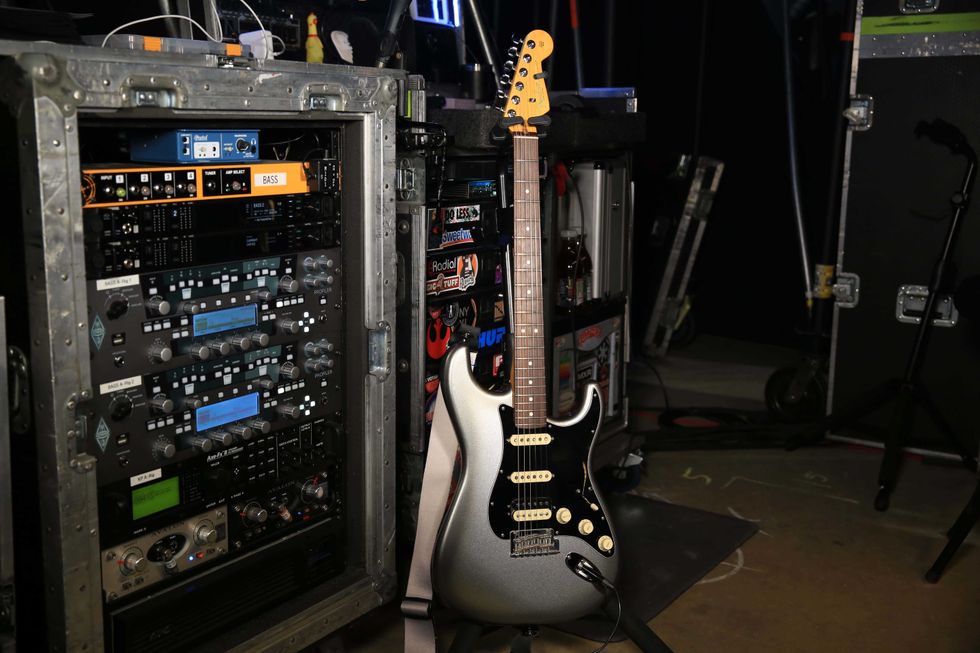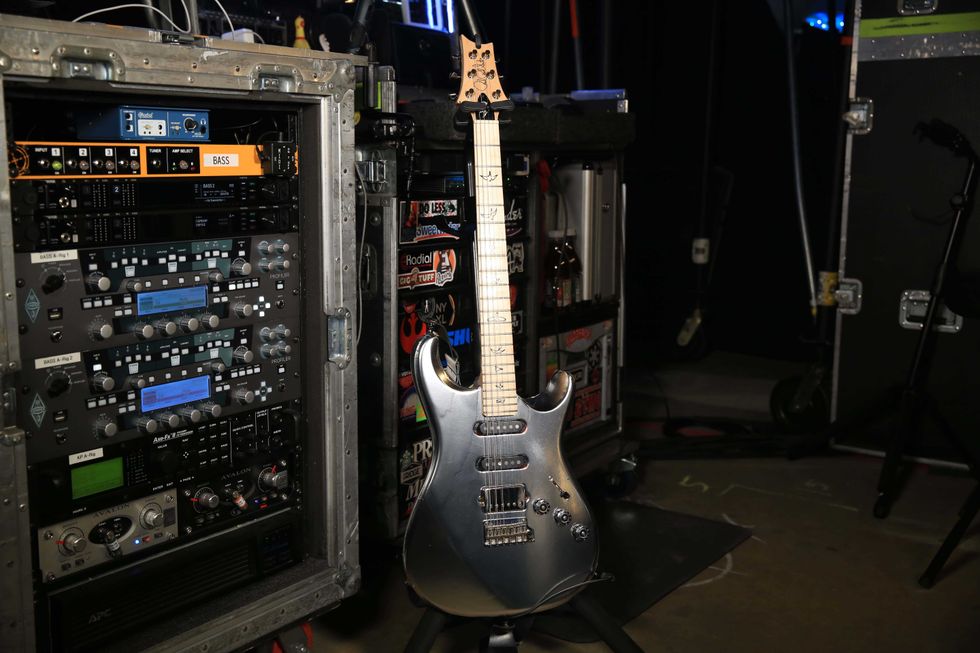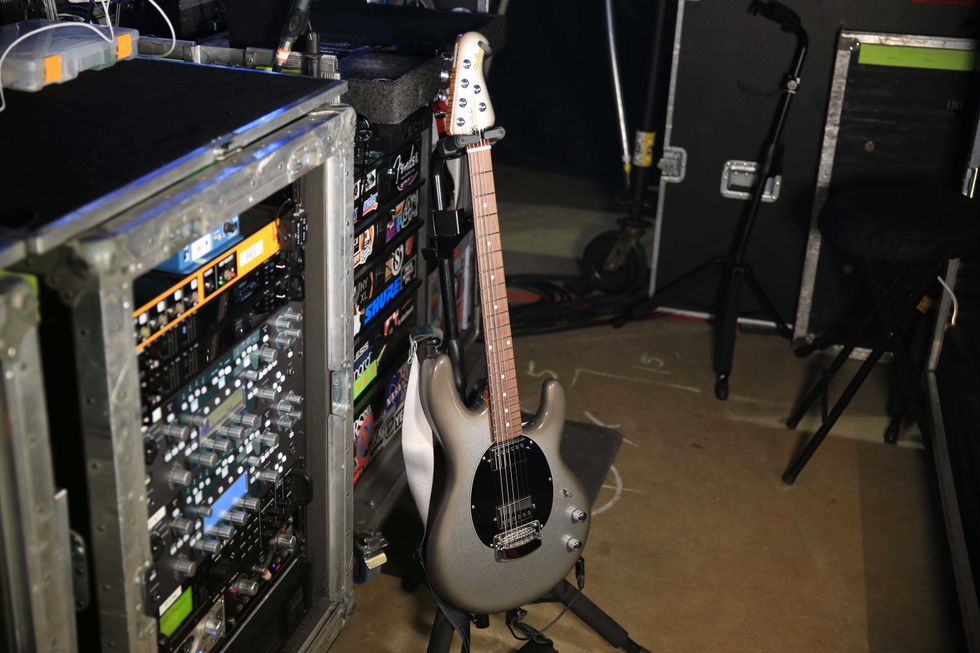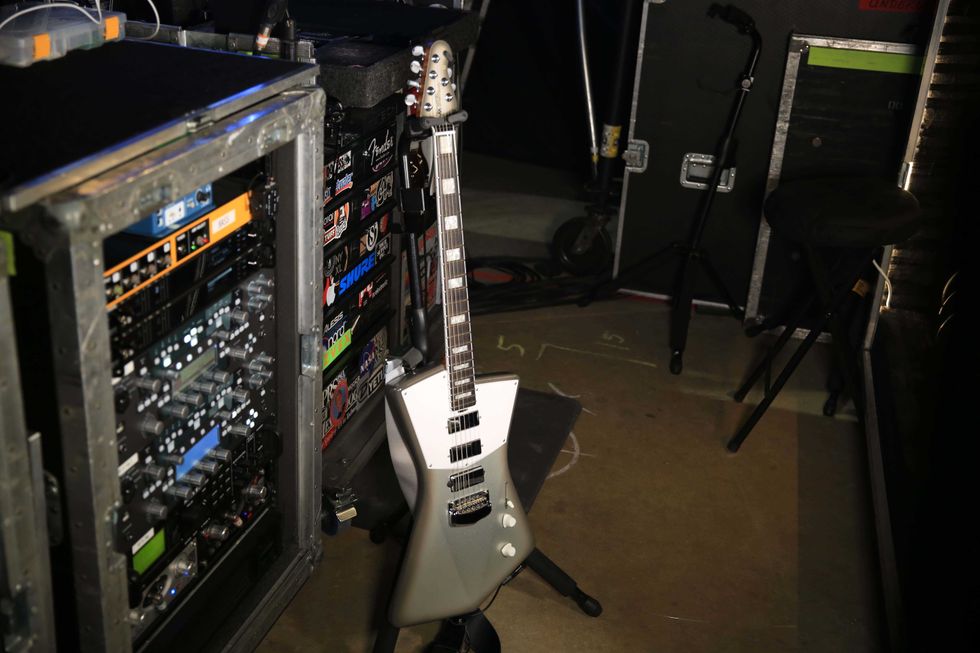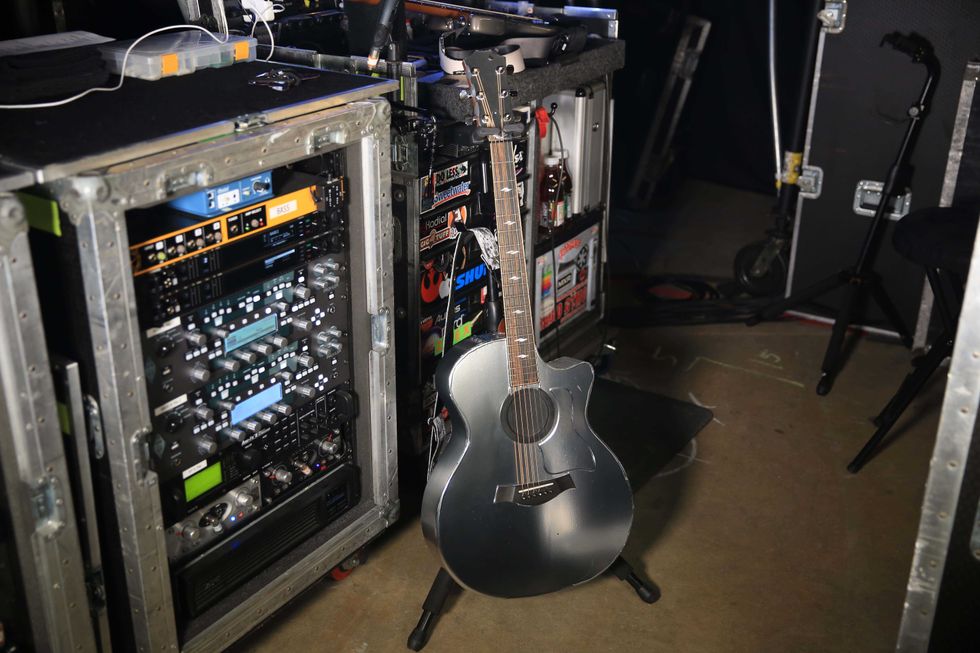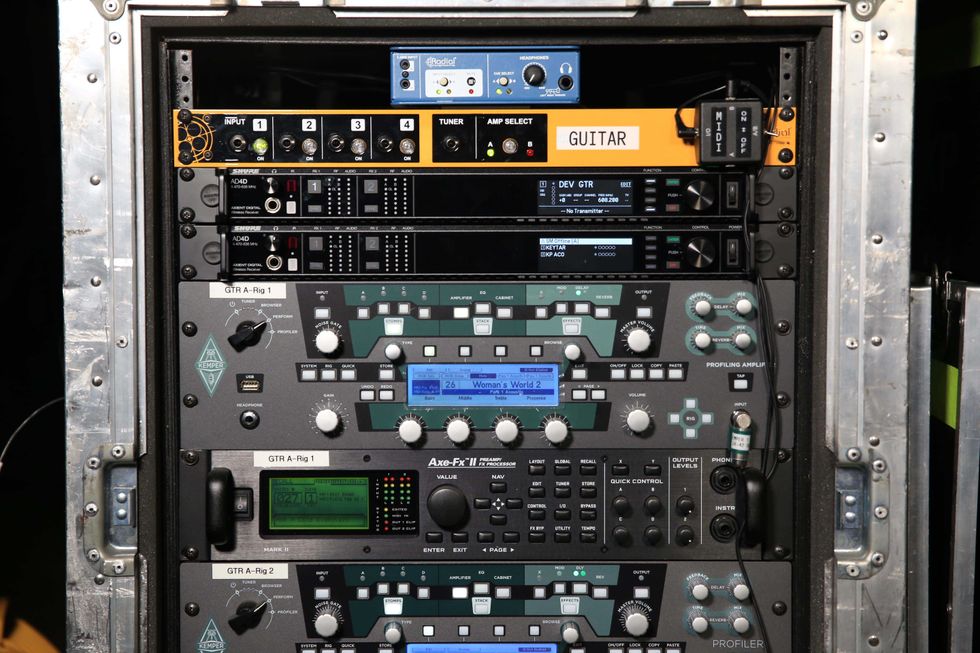Poet, author, patriot, rebel, felon, jailbird-turned-prison-reformer, and—most important—part of the twin-guitar engine of the influential rock band the MC5, Wayne Kramer died on February 2, at age 75, leaving a gap in the world of activist musicianship and a tear in the fabric of American music history. The cause was pancreatic cancer.
Kramer was just 19 when his career began with the founding of the Motor City 5 in Detroit, alongside fellow guitarist Fred Smith, singer Rob Tyner, bassist Michael Davis, and drummer Dennis Thompson in 1963. The group were as tough and complicated as their hometown—musical firebrands, playing with an energy and intensity rarely seen in the then still-evolving rock genre—and Kramer performed like Chuck Berry and Sun Ra in one body. Which made sense, for while rock was their voice, they embraced the cultural explosion of the times in all its glory, including free jazz, and in particular figures like John Coltrane and Sun Ra, whose music reflected the Black freedom struggle in its themes as well as the purity of self-expression.
As a result, before Hendrix began recording, the MC5 were blazing a trail in rock improvisation. “We attacked that concept like a dog on a steak,” Kramer told me at our first meeting in the ’90s, which was arranged by our mutual friend, the band’s original manager and counterculture icon John Sinclair. “The people we idolized were Coltrane, Sun Ra, Albert Ayler, Cecil Taylor … and the Yardbirds and the Who. We saw a connection between those kinds of music. I was pushing Chuck Berry-inspired solos into the territory Coltrane was in. We cultivated music in the moment, coming up with it on the spot. Taking risks is what makes something unique, no matter what it is.”
“It’s those moments when everyone in the room is on the same wavelength, and the barriers between us explode.” —Wayne Kramer
And so, for their raw, unbridled, and at times practically unhinged sonic attack, the MC5 are an important element in the bedrock of punk rock. “The context of punk,” Kramer explained, “is to try to move away from the status quo and do things of principle that are of value. Most people today understand it as something that’s been commodified to mean Green Day or the Offspring, which are mainstream music business success stories, not my understanding of what punk really meant.”
The MC5 almost immediately became a cultural force, in both music and American politics. “Kick out the jams, mother****ers,” the shout that singer Rob Tyner used to lead the charge of their every performance, became not only a call to rock, but a call of the rising tide of youth culture in America. On their own turf, the band used its record-deal advance, the largest scored by a rock group at the time, and concert proceeds to fund a food kitchen and for their local community’s medical needs.
After raising the ire of the American political establishment with a conflagrant performance in Lincoln Park, Chicago, during the 1968 Democratic Convention, they landed in the crosshairs of the authorities and their slow erosion began, complicated also by drug use and other internal conflicts, and the arrest and imprisonment in 1969 of their colorful manager Sinclair, who had founded the White Panther Party in support of the Black Panthers, and later co-founded the Ann Arbor Blues & Jazz Festival.
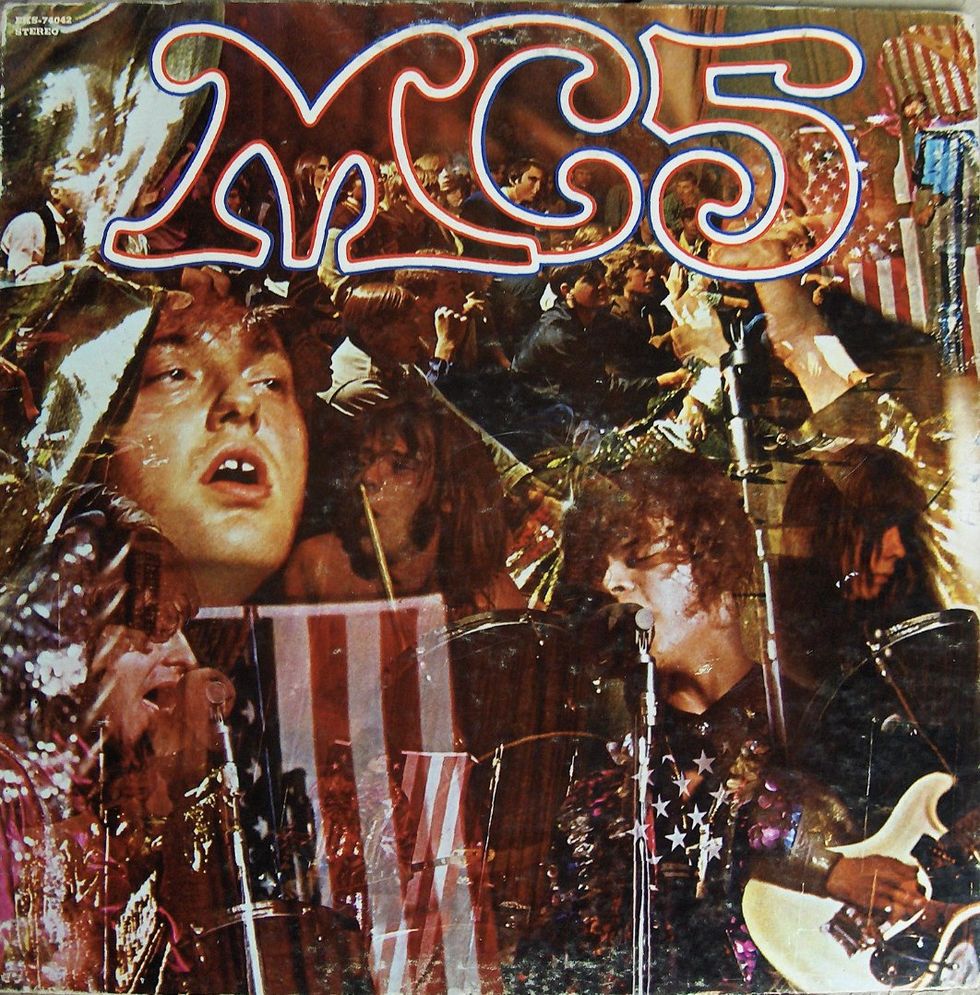
The MC5’s battle cry of a live album, from 1969.
Nonetheless, by then the MC5 had laid enough groundwork to be widely acknowledged as progenitors of punk rock (by virtually everyone but the Rock and Roll Hall of Fame, in which they surely deserved a place while Kramer was alive). Drummer Dennis Thompson remains the only surviving member of the original recording band, which broke up in 1972.
That spirit of activism and DIY creativity stayed with Kramer throughout his career—although it was sidelined by a four-year prison sentence in the mid 1970s for selling drugs to an undercover agent. While in prison in Lexington, Kentucky, he met Red Rodney, who was also incarcerated there on a drug charge. The jazz trumpet genius took Kramer under his wing and continued Kramer’s musical education in prison.
After serving his time, Kramer moved to New York City and teamed up for a short-lived band with Johnny Thunders, and produced and played in a series of other groups. He also worked as a carpenter during a brief stint in Nashville. But in 1991, he ignited his solo career with a series of albums, including the beautiful gut punch of 1995’s The Hard Stuff, which features his acolytes from the Melvins and the Vandals. These albums blended Kramer’s songs and his poetry set to music, and his list of collaborators grew to include Dee Dee Ramone, Chris Spedding, Bad Religion, David Was, Nels Cline, and, perhaps most importantly, kindred spirit Tom Morello, for whom the MC5 and Kramer were profoundly influential. Kramer eventually launched his own record label and a U.S. branch of Jail Guitar Doors—the latter an offshoot of the U.K. organization started by Billy Bragg, dedicated to reforming inmates through music.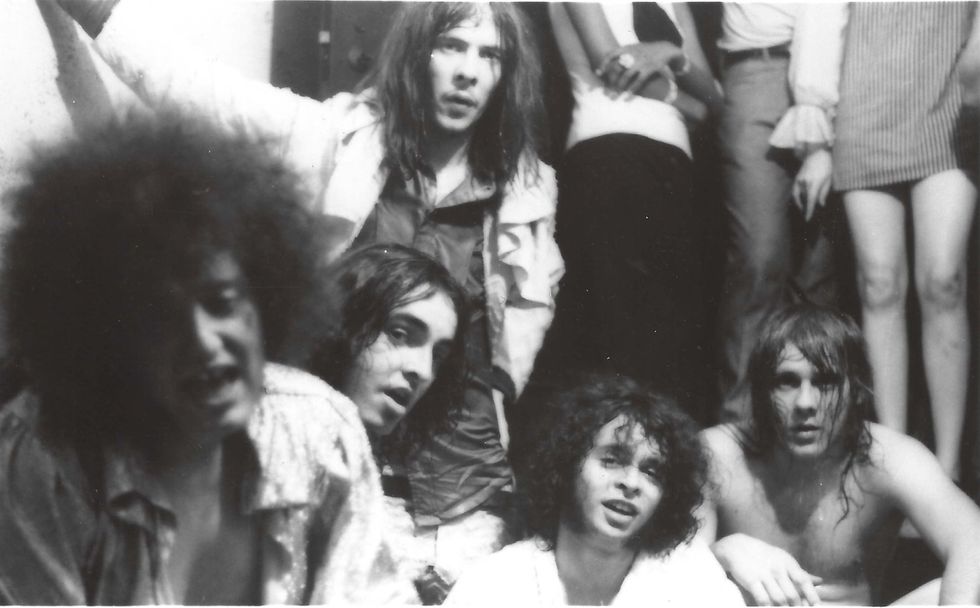
The classic MC5 lineup.
Kramer never lost his vitality onstage and, after 2011, always played the Stratocaster signature model that Fender created for him that year, with an American-flag finish and a humbucker in the middle position. Starting in 2018, Kramer put together a band he named the MC50, to tour in celebration of the 50th anniversary of the MC5’s 1969 live album Kick Out the Jams, the most furious document of their aesthetic. The band performed the MC5’s music with brass-knuckled perfection, and included Soundgarden’s Kim Thayil, Fugazi’s drummer Brendan Canty, and Zen Guerilla frontman Marcus Durant. And Kramer, then 71, led the fray with the snarl and pounce of his 19-year-old self, always heading the charge with solos that were brash, raw, and expressive, displaying his love of free jazz with unpredictable melodic lines, flurries of notes not unlike triple tonguing, and jagged riffs, and laying down self-assured and powerful chording that could drive a spike through a wall. And he did it all with a warm, midrange-ripe tiger’s growl snarling from his amps—then Fender DeVilles, rather than the 100-watt Marshalls stacks he played through with the MC5.
During that tour, in 2019, Wayne was profiled in Premier Guitar by Bill Murphy, when his fascinating autobiography, The Hard Stuff: Crime, Dope, the MC5, and My Life of Impossibilities, was published. Astonishingly, Kramer’s final recording project is an album under the MC5 name, featuring the band’s original drummer on two tracks, Don Was, Morello, Vernon Reid, and Slash—and produced by Bob Ezrin. The release of the album, Heavy Lifting, is scheduled for this spring.
Morello issued this statement following Kramer’s death: “His band the MC5 basically invented punk rock music. Wayne came through personal trials of fire with drugs and jail time and emerged a transformed soul who went on to save countless lives through his tireless acts of service.”
When I last spoke with Wayne, when the MC50 played at Nashville’s Exit/In, he still extolled his belief in the magic of the moment. “To be right there, in a club, and to hear somebody play something they’ve never played before—to take a chance, to allow risks.… It’s those moments when everyone in the room is on the same wavelength, and the barriers between us explode.”
YouTube It
Listen to the MC50 and Wayne Kramer kick out the jams, mother****ers! One more time....
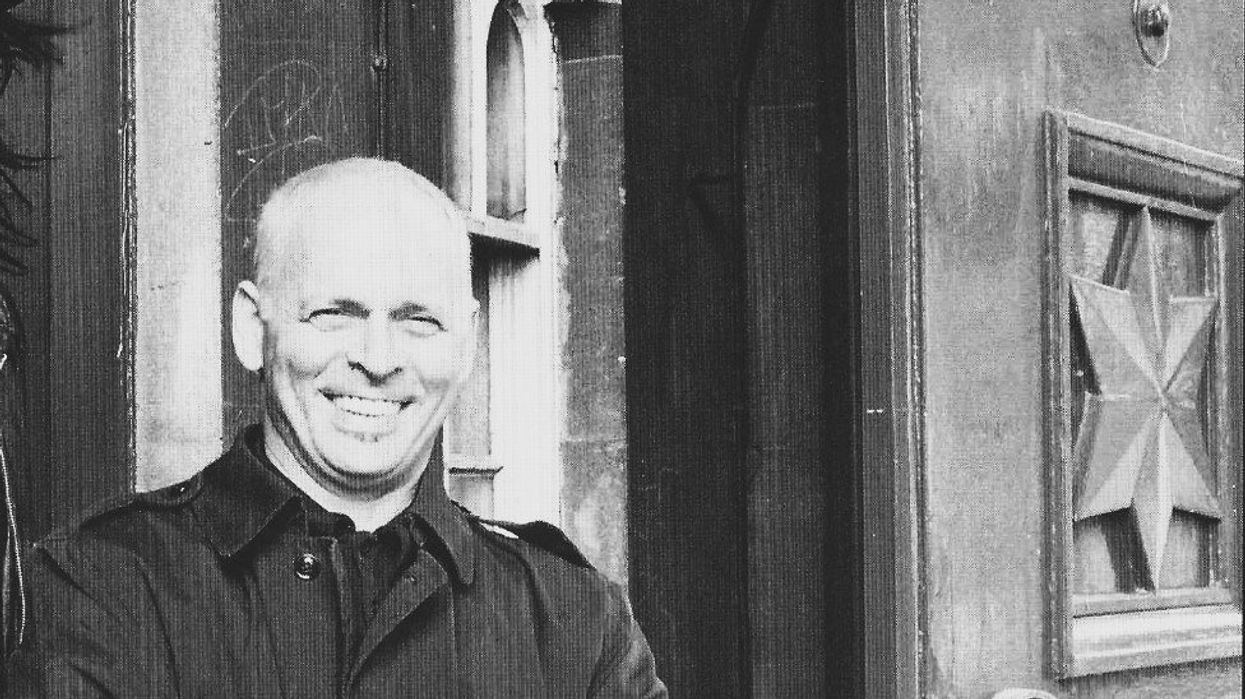





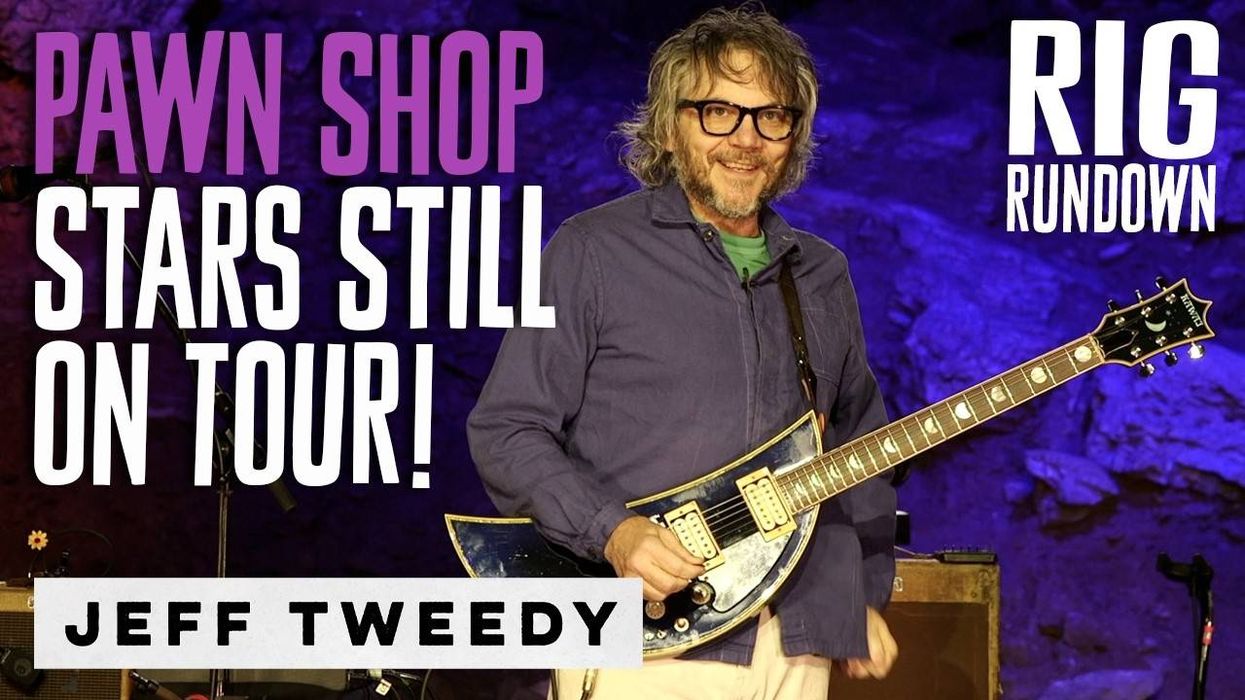
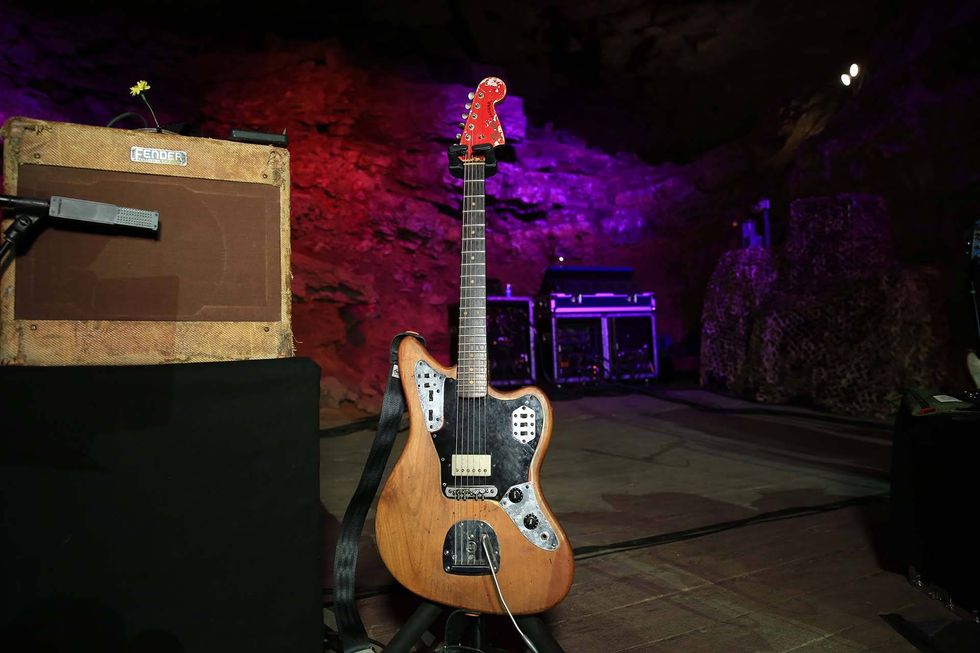
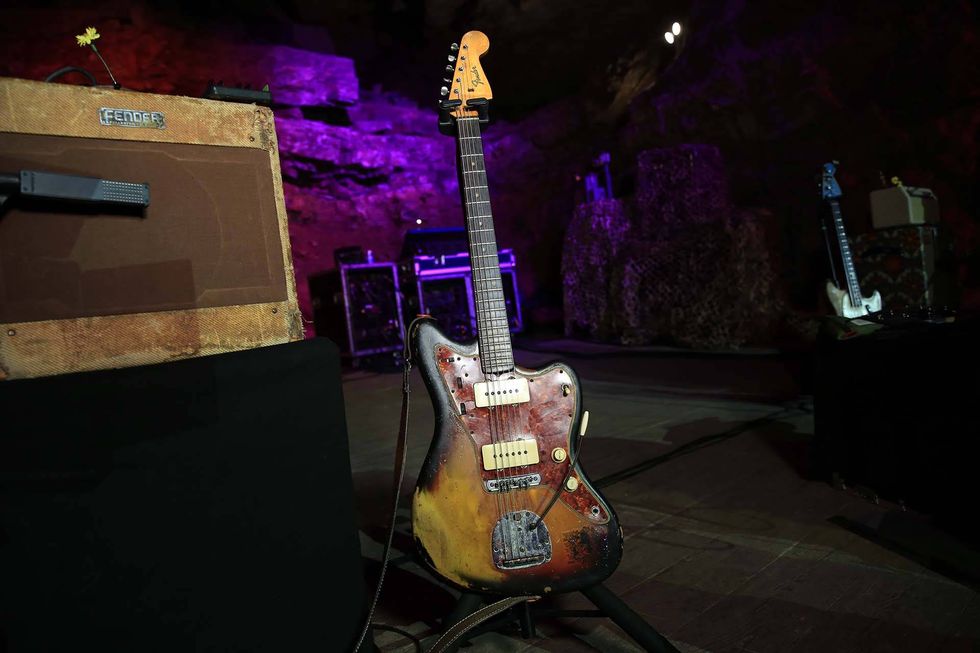
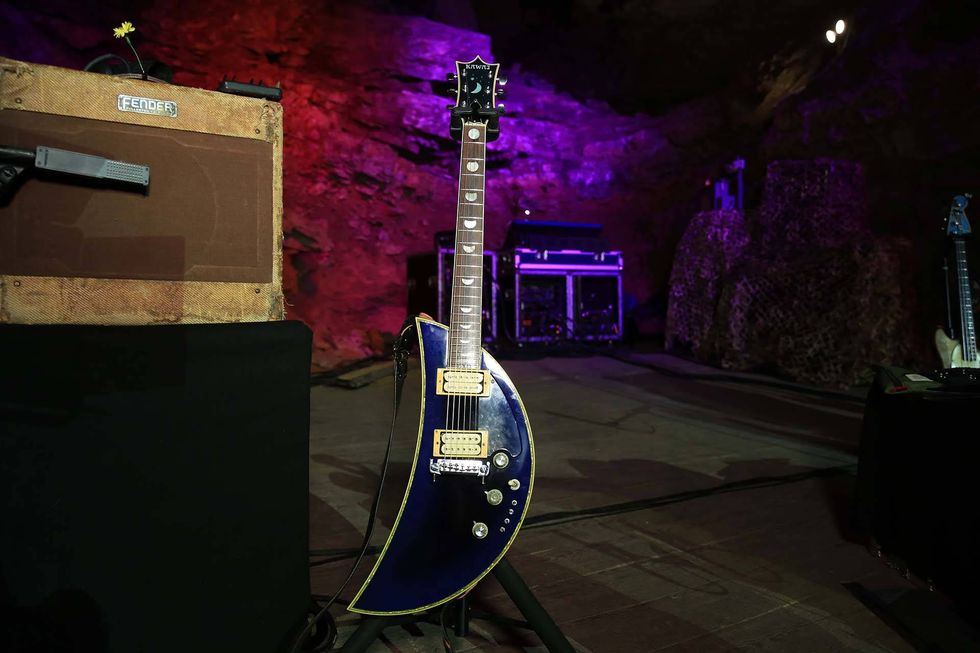
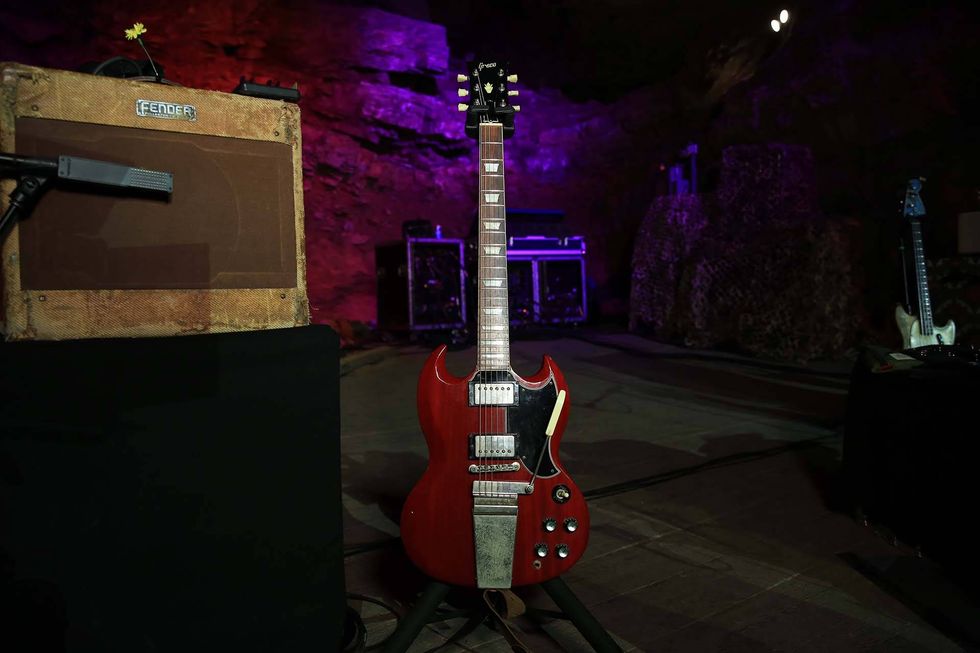
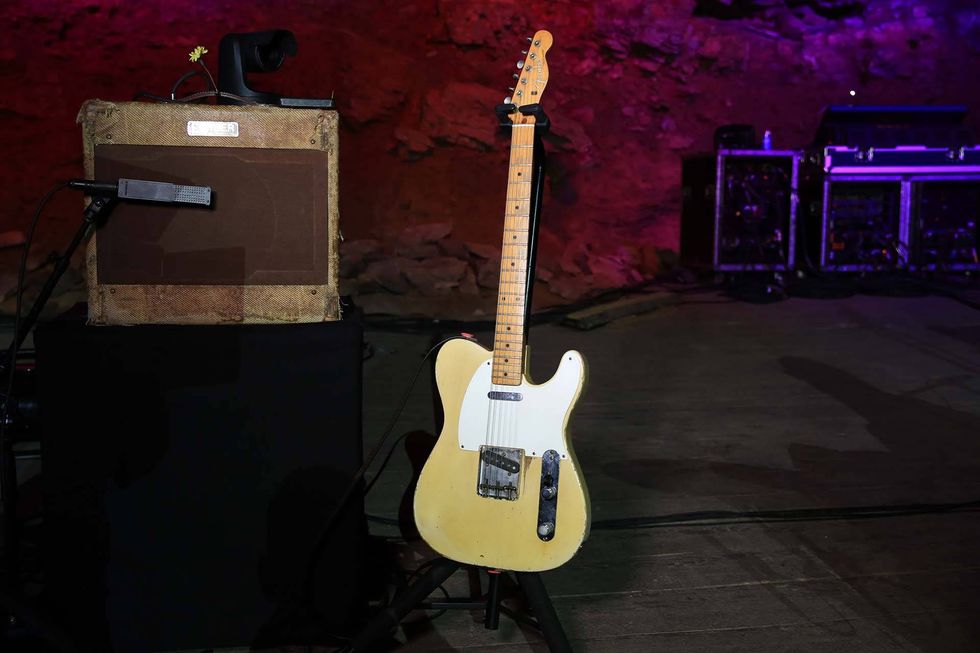
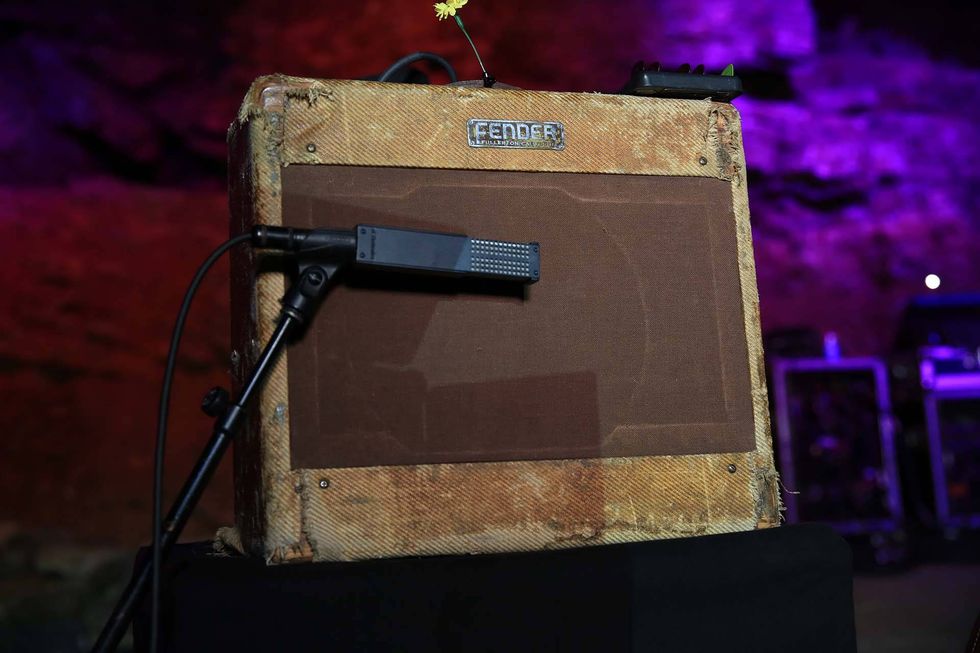
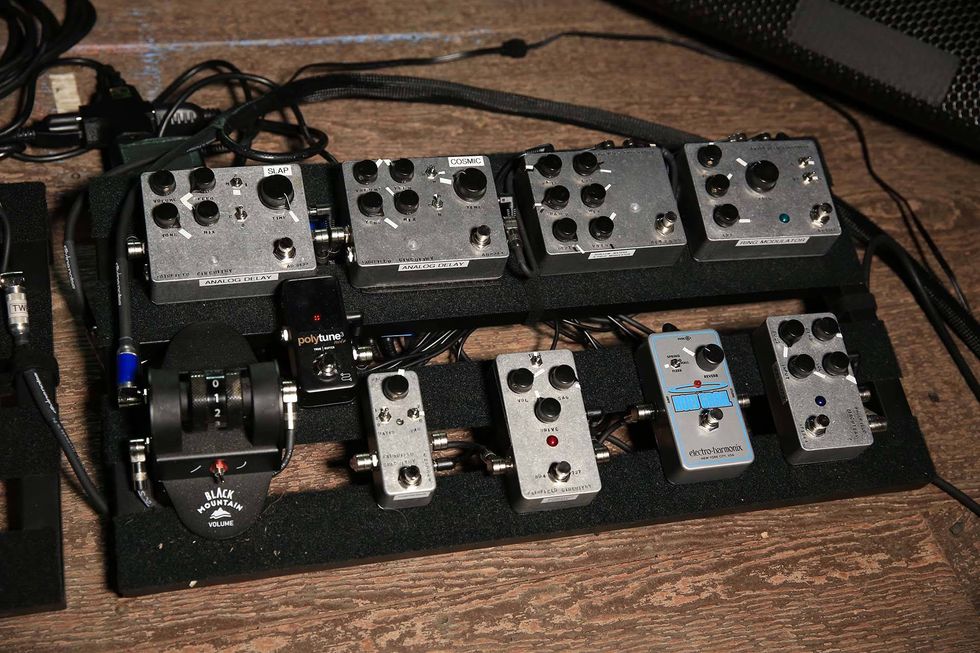
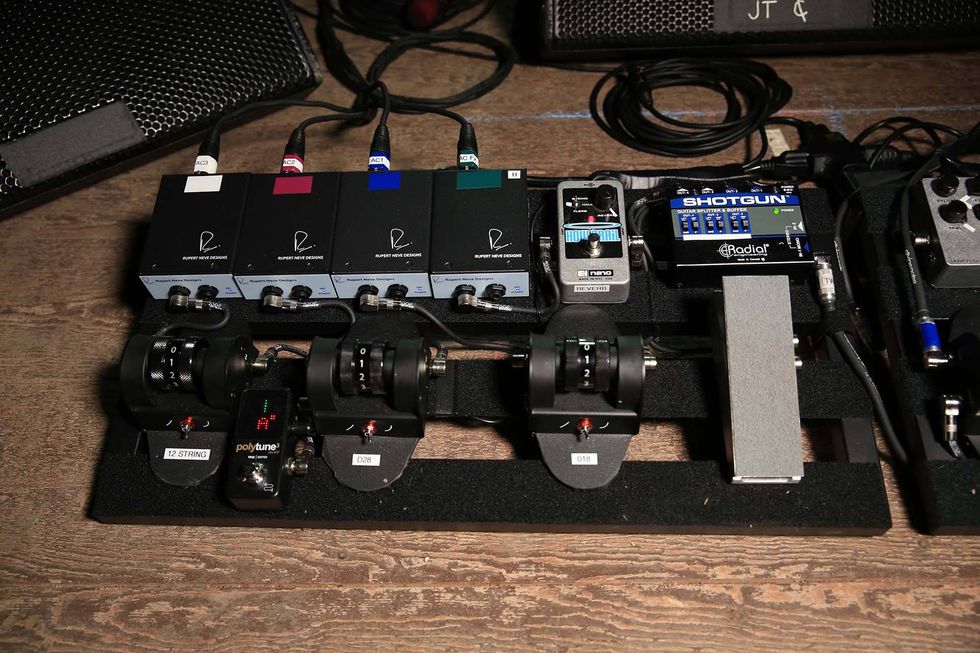

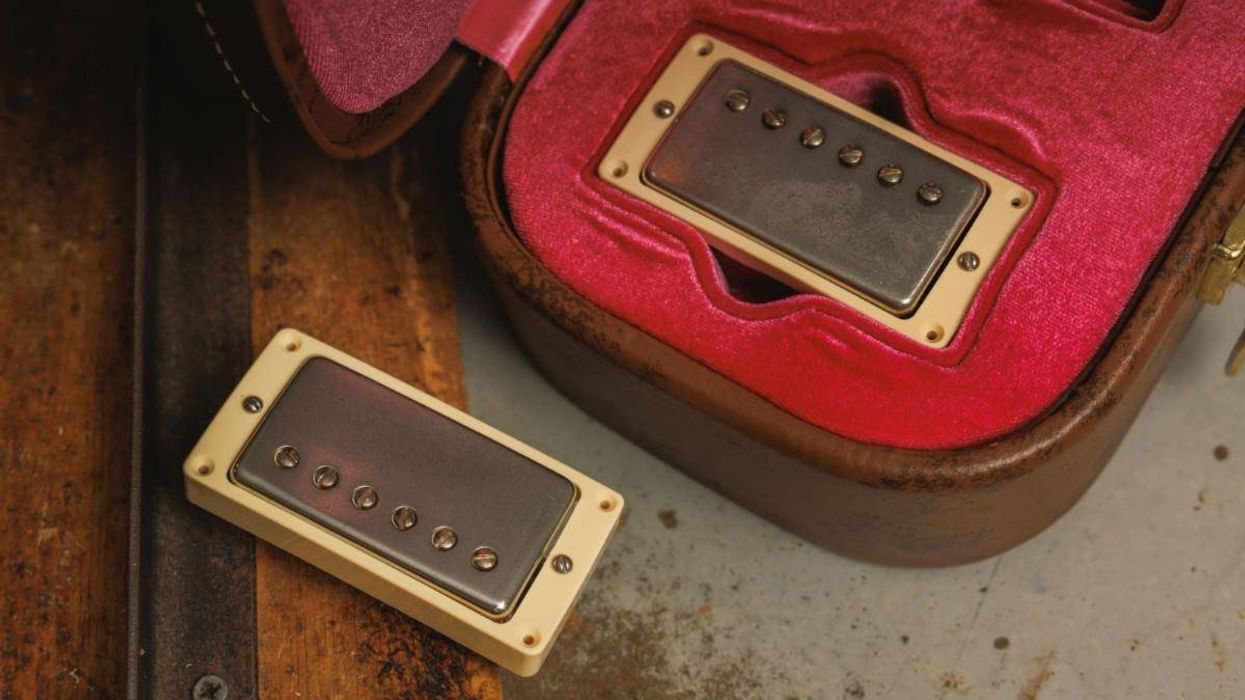

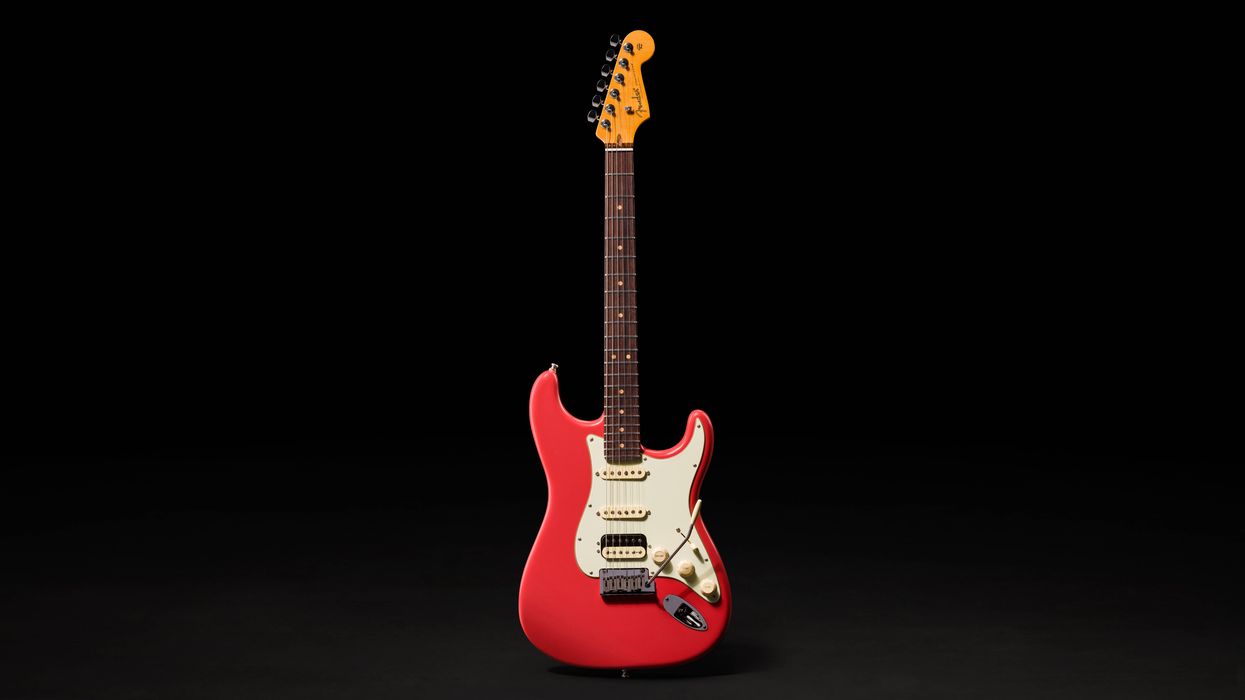
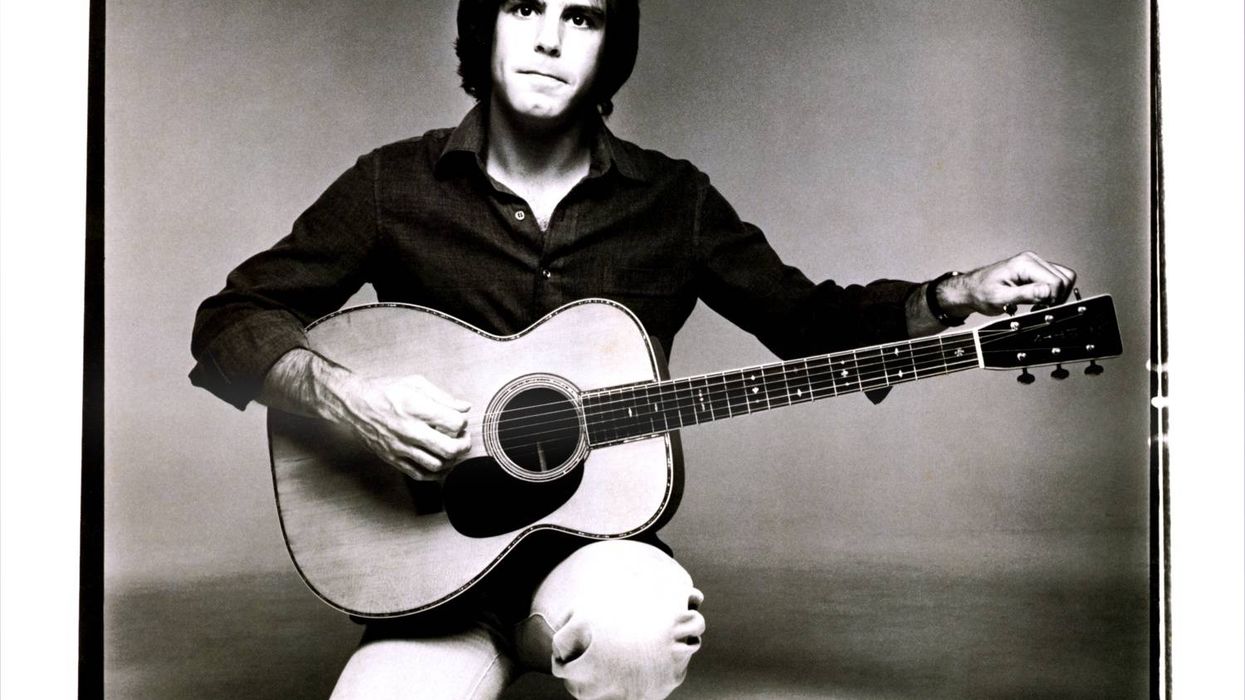
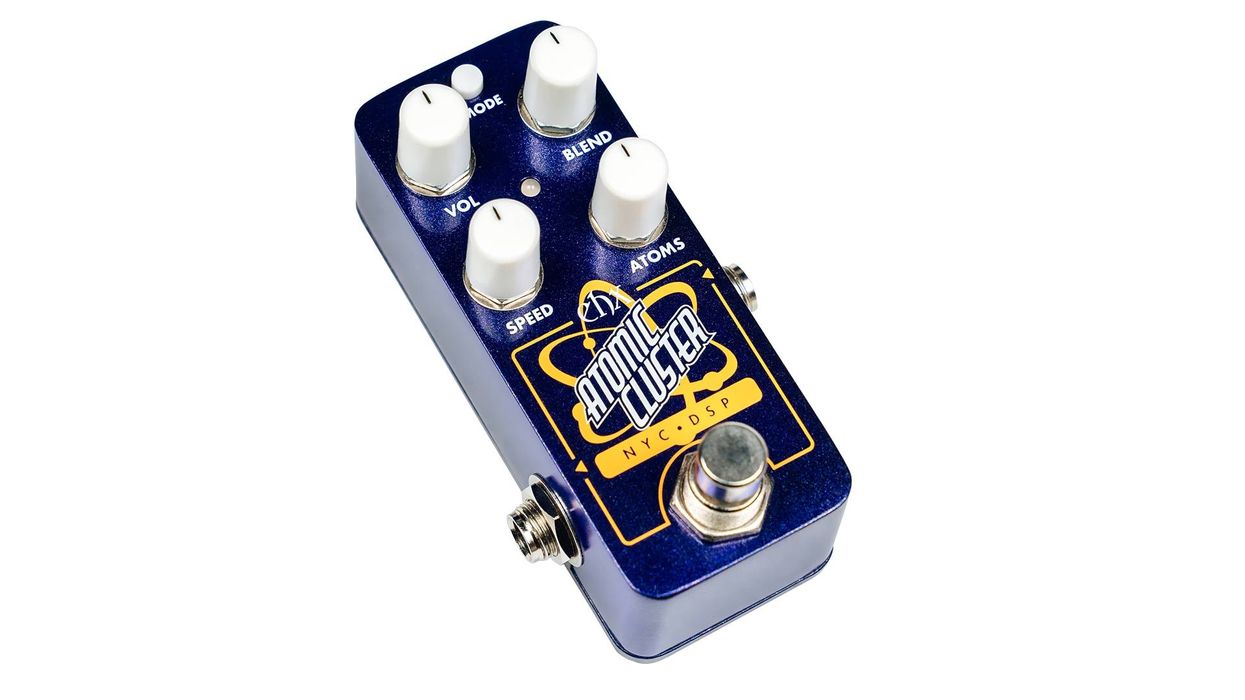
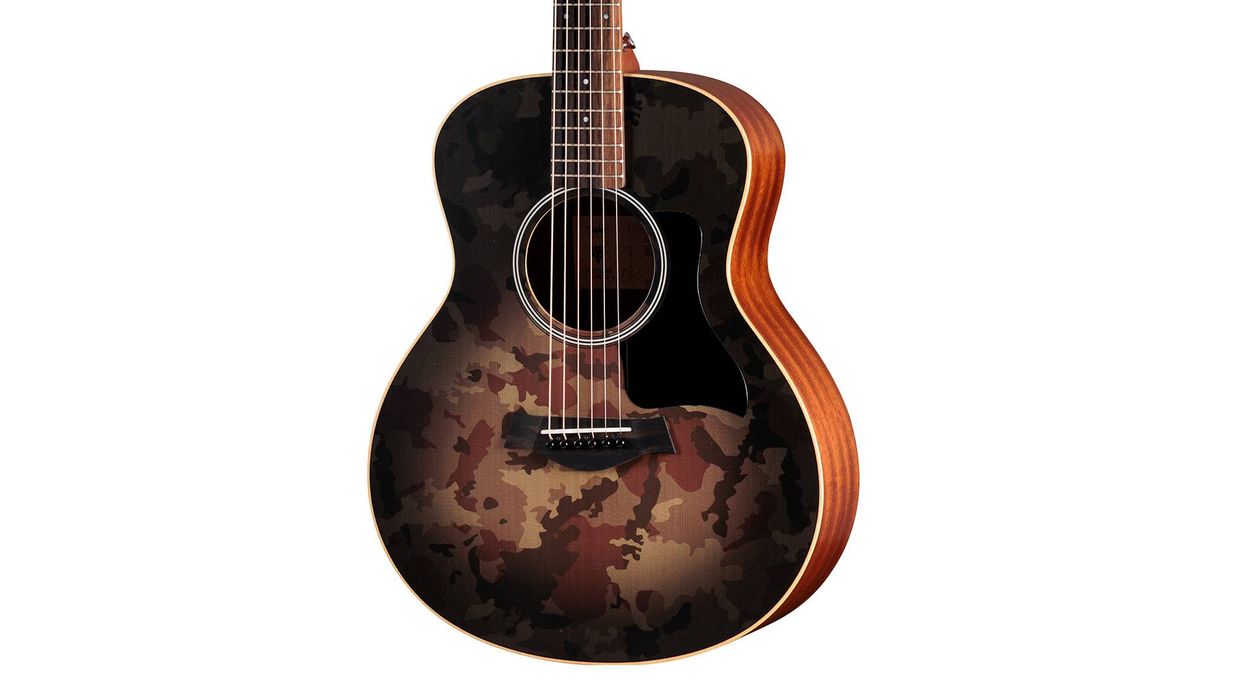
![Rig Rundown: AFI [2025]](https://www.premierguitar.com/media-library/youtube.jpg?id=62064741&width=1245&height=700&quality=70&coordinates=0%2C0%2C0%2C0)




















 Zach loves his Sovtek Mig 60 head, which he plays through a cab he built himself at a pipe-organ shop in Denver. Every glue joint is lined with thin leather for maximum air tightness, and it’s stocked with Celestion G12M Greenback speakers.
Zach loves his Sovtek Mig 60 head, which he plays through a cab he built himself at a pipe-organ shop in Denver. Every glue joint is lined with thin leather for maximum air tightness, and it’s stocked with Celestion G12M Greenback speakers.












![Devon Eisenbarger [Katy Perry] Rig Rundown](https://www.premierguitar.com/media-library/youtube.jpg?id=61774583&width=1245&height=700&quality=70&coordinates=0%2C0%2C0%2C0)
